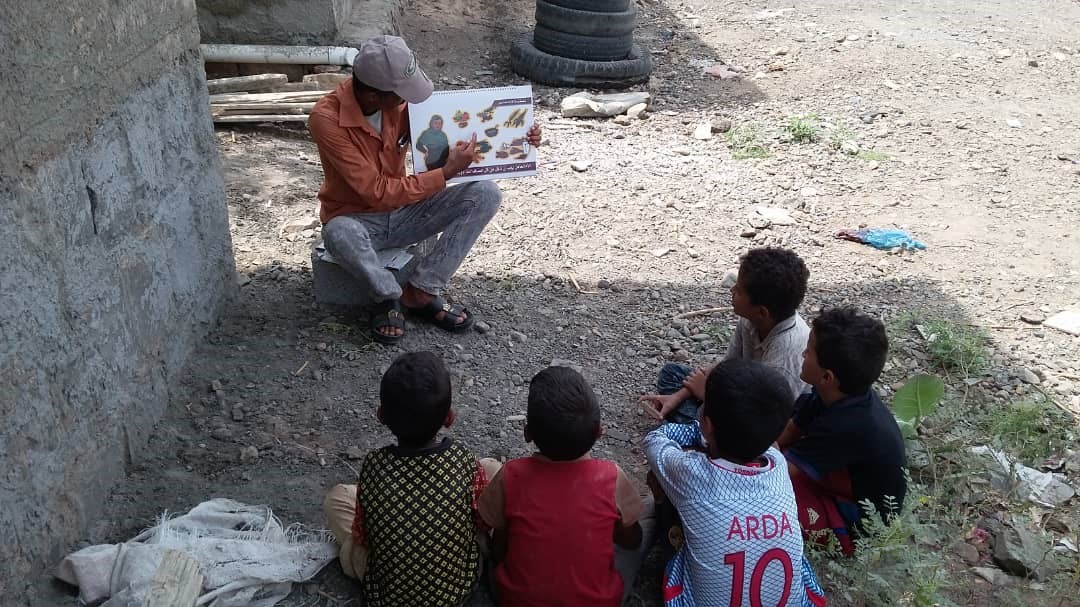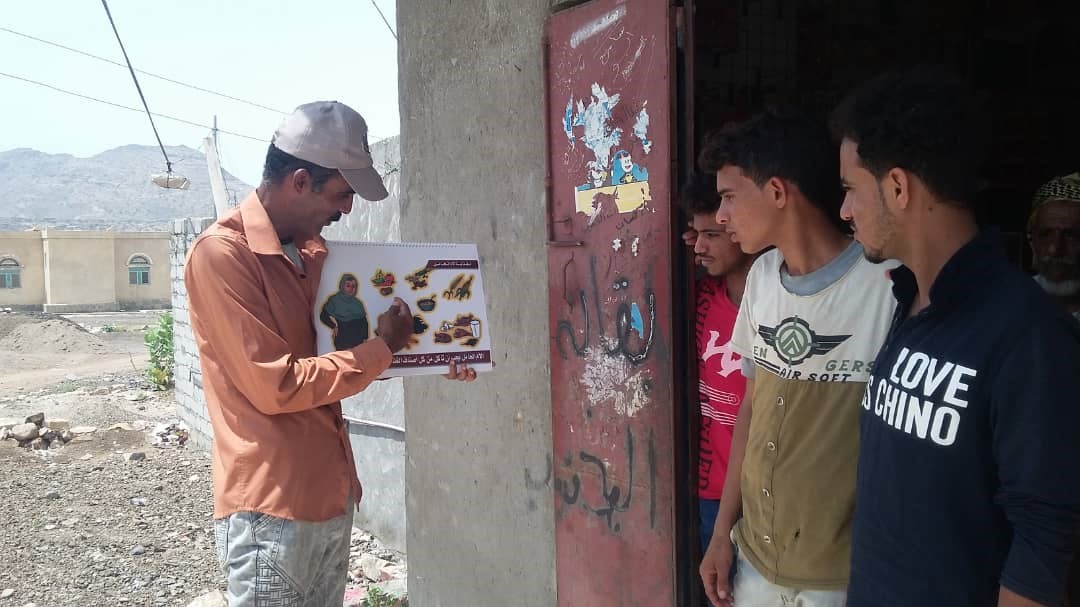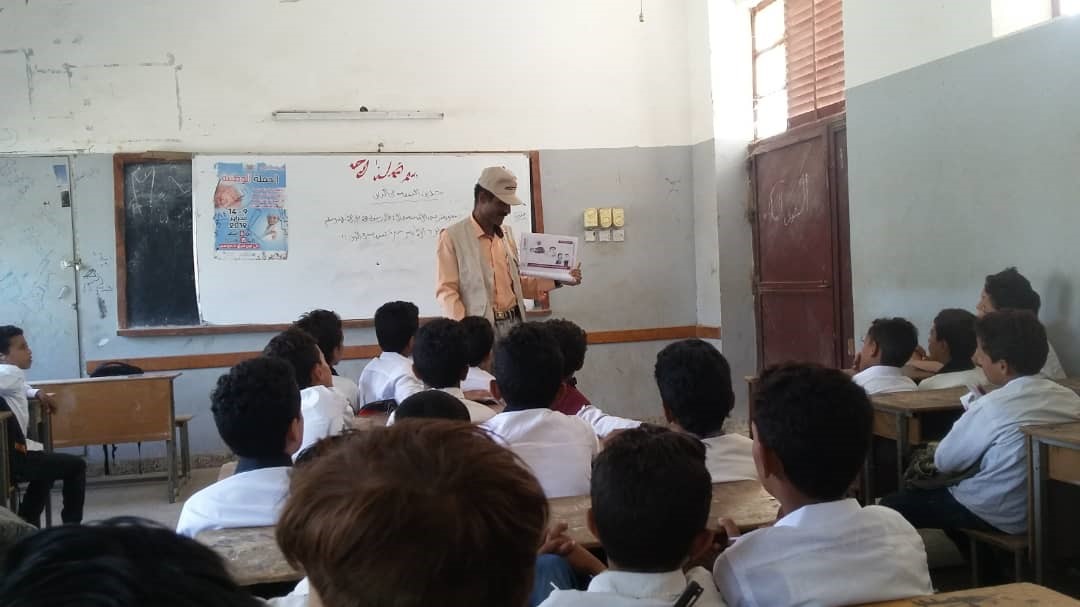In the city of Halameen in Lahj governorate, sanitation and hygiene is severely lacking, after nearly five years of conflict in Yemen destroyed services and infrastructure in Yemen, leading to the spread of diseases like cholera and dengue fever.
Taleea Saeed Nasher, 45, is the provider for his family of eight. He works hard and receives a meagre daily wage. Like many other families in the area they suffer from diseases caused by water pollution, a lack of hygiene and poor nutrition, which puts huge pressure on the family’s income and increases their suffering.
As the situation deteriorated the people of Halameen city found nothing but burning rubbish heaps and sewage in their streets and in front of their homes, causing an environmental disaster. Taleea says: “The city was suffering from the spread of garbage, sewage, diseases and insects that made our lives hell.”
Taleea’s personal situation became harder when he could not find any work, and was reduced to having to borrow money to buy food for his family. His children were suffering from diseases related to malnutrition, especially anaemia, and his wife was diabetic.
“I was crying every day when I saw my children suffering from anaemia and I wasn’t able to help them,” says Taleea through his tears.
Thankfully, with funding from the Yemen Emergency Food Assistance Project (YEFA III) funded by the United States Agency for International Development (USAID), CARE intervened with a project to address this suffering. Taleea was elected to be the area representative of the project, and after receiving a training in environmental sanitation, nutrition and hygiene awareness he began to spread awareness messages in schools, public facilities and markets. He was also involved in the implementation of activities, the most important of which is the International Day of Handwashing.




